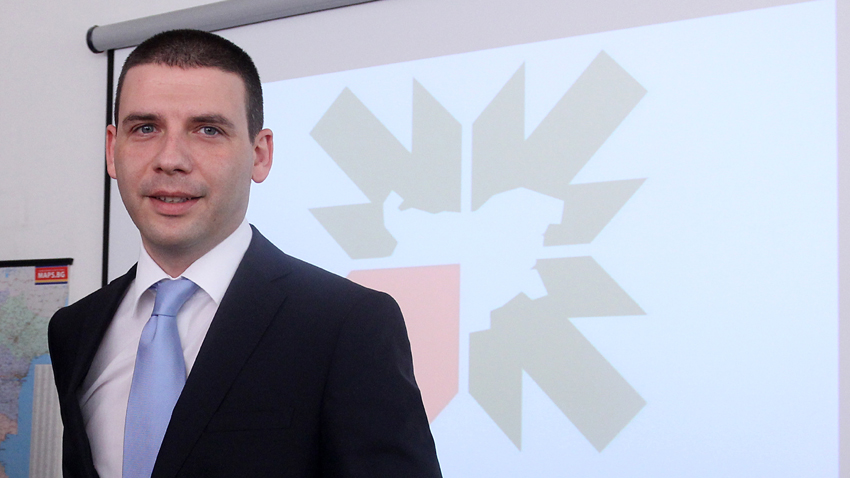Although the level of the foreign direct investments in Bulgaria continues to be low, the Invest Bulgaria Agency has published a relatively optimistic forecast. Some EUR 1.2 billion will come to Bulgaria by end 2014-said in an interview for Radio Bulgaria the Chief Executive Director of Invest Bulgaria Agency Svetoslav Mladenov.
“The forecasts are based on the investment certificates issued since the beginning of 2014”, Svetoslav Mladenov goes on to say. “Twelve projects worth EUR 48.5 million were certified in the first six months of 2014. They created 3,200 new jobs. Another fifteen projects are now being considered and twenty eight are being prepared.”
Those fifteen projects which are currently being certified are to the tune of nearly EUR 290 million and are to open 7,850 new jobs. InvestBulgaria Agency is working on twenty eight other projects. It is now assisting the potential investors chose the region for their investment projects and to prepare the necessary documentation. The potential value of these twenty eight projects is to the tune of EUR 770 million. Over 22,000 new jobs are to be opened in the next few years, says Chief Executive Director of Invest Bulgaria Agency and adds:
 “The new projects are mainly in the following fields: machine building, electronics, outsourcing of business processes, IT, transport, logistics, chemical industry and manufacture of parts for the automotive industry”, says Svetoslav Mladenov.
“The new projects are mainly in the following fields: machine building, electronics, outsourcing of business processes, IT, transport, logistics, chemical industry and manufacture of parts for the automotive industry”, says Svetoslav Mladenov.
In his view, one of the most successful projects is the one of German company Nexans Autoelectric. Its representative in Bulgaria- Electrocabel will manufacture as of the end of 2014 in the city of Pleven (Central North Bulgaria) cable equipment for leading European car manufacturers.
“This is a region with very high unemployment”, Svetoslav Mladenov goes on to say. “Some 500 new jobs are expected to be opened there. The necessary production equipment will be set up very quickly. We are talking about a very high-quality project which will help to a great extent this region attract other foreign investments as well.”
Italian, Spanish, German, Austrian, Chinese, Japanese and Russian companies are currently interested in making investments in Bulgaria. The most expensive projects are ones of Dutch, Austrian, Greek and German companies. “Unfortunately, we lost our good position on the Asian markets. Traditionally, we traded well in sectors linked with the food industry and the pharmaceutical industry”, says Svetoslav Mladenov and adds:
“We lost our good position in some sectors, as a result of the global changes. Currently our efforts are focused on stepping back on traditional markets and finding new niches in the food industry, the organic farming, textile industry, etc. However, we need to advertise more. According to our estimates, we need to improve our strategy regarding those markets. The InvestBulgaria Agency should help in this direction as well. However, the Bulgarian business must be more active, too. The diplomatic and economic representatives could also play a key role. Many steps in the right direction have been made over the past years. To our good surprise, 140 representatives of over 80 Bulgarian companies attended a business forum which was recently held in Japan. As a result, representatives of Japanese companies are to visit Bulgaria and start business negotiations at the end of 2014”, concludes Svetoslav Mladenov.
Despite the optimistic forecast about the foreign direct investments voiced by the Chief Executive Director of InvestBulgaria Agency Svetoslav Mladenov, data of the Bulgarian National Bank show a different picture. According to BNB, the net sum of the foreign direct investments (FDI) in Bulgaria amounted to EUR 232 million in the first five months of 2014, which is EUR 147 million less, as compared to the same period last year. The Bulgarian emigrants make biggest investments in the country. They transferred nearly EUR 370 million in the first five months of 2014 which is EUR 137 million more than the foreign direct investments made in Bulgaria for the same period.
In the second quarter of 2025, Bulgaria recorded the second-highest GDP annual growth in the European Union with a rise of 3.4% compared to the same period last year, according to Eurostat data. Compared to the previous quarter of 2025, Bulgaria..
Bulgaria’s state budget for 2025 does not add up. “The genie is out of the bottle – the state has never spent at such a pace,” warn financial experts. With only a few months left in the year, and despite the strenuous efforts of institutions such as the..
Bulgaria’s state gas supplier Bulgartransgaz has been “decapitalised” by a contract with Turkish company Botaş, Energy Minister Zhecho Stankov warned on Thursday, saying the deal could also threaten gas supplies to local district heating companies...

+359 2 9336 661
